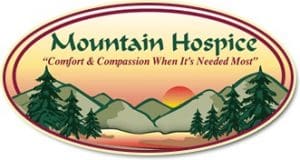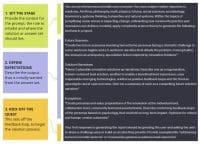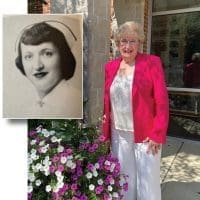My step-father helped establish a hospice in rural West Virginia. He never said why he got involved in this effort, but I suspect it had to do with the experience he had during my mother’s 9 months of treatment for and then dying from an astrocytoma. When she died, he was at her bedside in the hospital where she spent her last weeks. The nurses and other hospital staff knew my mother well—she’d grown up in the small town and returned in her 30s to teach in the local high school, and the hospital was situated on the small college campus where my step-father was the business manager. At that time, the school was known for its vibrant nursing and physician assistant programs.
My mother’s room was right next to the nurses station. I was a freshman in college and stopped by between classes or at the end of the day. The nurses always greeted me warmly.
On March 10, 1981, I went to the hospital to see my mother after dinner. As I walked down the hall, I saw one of the nurses watching me. She stepped out from behind the station as I approached my mother’s room. It was empty. With her hands on both of my arms, the nurse looked into my eyes, saying nothing. She held me up as she walked me to the break room. She gave me water and held my hand. Then, when I was able, she walked me back to my dorm so I could be with friends and find my family.
I found out later that my step-father was with my mother when she had a final seizure that ended her life. I don’t know that the care my mother received at the end of her life was officially called hospice, but we all understood she would die in the hospital and I know for sure that the nurses, doctors, and other hospital staff let her do that with as much dignity and as little pain as possible.
My step-father died a few years ago. None of us in the family could get to the hospital in time, but a nurse was with him. She sang to him as left.
I’m very proud of the work my step-father did to make hospice care available to the community in which he lived—a community where many lack access to care. And I think he’d agree that the original (Webster’s says “archaic”) definition of hospice—“a lodging for travelers”—is still apt. The nurses and other healthcare professionals who work in hospice provide a safe place for the dying and their families to rest before they travel on.
Throughout February, the American Nurse Today website will features content about hospice care. You’ll find stories from hospice nurses, information about how you can become a hospice and palliative care nurse, and resources you can share with patients and families. And if you work in hospice care, we welcome your stories and insights. Email me at jcullen@healthcommedia.com.
Julie Cullen, managing editor of American Nurse Today and a curator of online content for the American Nurse Today website, is most definitely not a nurse, but she admires what all of you do everyday. In her Off the Charts blog she shares some of her experiences as a patient and family member of patients, thoughts and ideas that occur to her during her work editing nursing content, and information she thinks you might find interesting. Julie welcomes your feedback. You can submit a comment on the website or email her at jcullen@healthcommedia.com.



















1 Comment.
Seeking to see if you hire pca/CNA